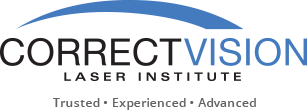The Top LASIK Concerns
 LASIK is a successful procedure for correcting vision problems, such as astigmatism, nearsightedness (myopia) and farsightedness (hyperopia). It works by using a laser to reshape the cornea to improve the way the eye focuses, or refracts, light.
LASIK is a successful procedure for correcting vision problems, such as astigmatism, nearsightedness (myopia) and farsightedness (hyperopia). It works by using a laser to reshape the cornea to improve the way the eye focuses, or refracts, light.
Ophthalmologists began using LASIK (laser assisted in-situ keratomileusis) in the United States in the late 1990s. Since then, more than 16 million people in the U.S have undergone LASIK surgery. It is a popular procedure because, in most cases, it eliminates the need to wear contact lenses or glasses.
Eyesight is a critical part of life, and, just like with any surgery, it is natural to have concerns about undergoing laser eye surgery. The following information will address some of the top concerns you may have about LASIK.
How Safe is LASIK?
A joint, multi-center study completed by the Federal Drug Administration and the Department of Defense in 2014 showed a high success rate for LASIK surgery with minimal complications. Statistically, daily contact lens wearers have a 1-in-2,000 chance of significant vision loss due to eye infections compared to a 1-in-10,000 chance following LASIK eye surgery.
How Effective is LASIK?
Patients who opt for LASIK have a better than 95 percent chance of obtaining 20/20 eyesight; in many cases, the vision is even sharper at 20/15 and 20/10. Those who have undergone LASIK, report a satisfaction rate between 92 percent and 98 percent. In less than five percent of cases, an additional enhancement procedure is necessary to upgrade the initial results.
Does LASIK Have Any Side Effects?
Earlier lasers used in LASIK surgery focused on the front of the cornea; this essentially flattened out the curved surface of the eye and often led to side effects, such as halos, glares and problems with night vision. The lasers that are currently used retain the curvature of the eye and significantly reduce these issues. There is no pain with LASIK surgery; you have a quick recovery time and in most cases can resume your normal activities the next day with minimal discomfort. You may be given a pair of sleep goggles or eye shields to wear for a few nights as extra protection for your eyes, and you may also temporarily experience dry eyes, which can be alleviated by using lubricating eye drops.
Does LASIK Cause Cataracts?
LASIK corrects vision by modifying the shape of the cornea; cataracts are a steady clouding of the lens inside the eye over time. LASIK does not cause cataracts and patients are able to have successful cataract surgery after LASIK. LASIK does not prevent the development of cataracts, glaucoma or macular degeneration. It is also important to note that LASIK does not avoid the development of presbyopia, the inability to see up close or fine print. Presbyopia develops as a natural result of the aging process and can be corrected with glasses.
LASIK is not a suitable option for everyone, and surgery of any type comes with some risk. However, advances in LASIK technology makes LASIK a safe, effective option for many people.
CorrectVision Laser Institute is one of Florida’s most advanced vision correction practices with extensive experience in LASIK. Our goal is to open your eyes to the world of great vision by offering unparalleled expertise and the most advanced technology available. Contact us today for a consultation with one of our South Florida eye specialists, located in Hollywood, Weston and Pembroke Pines!


